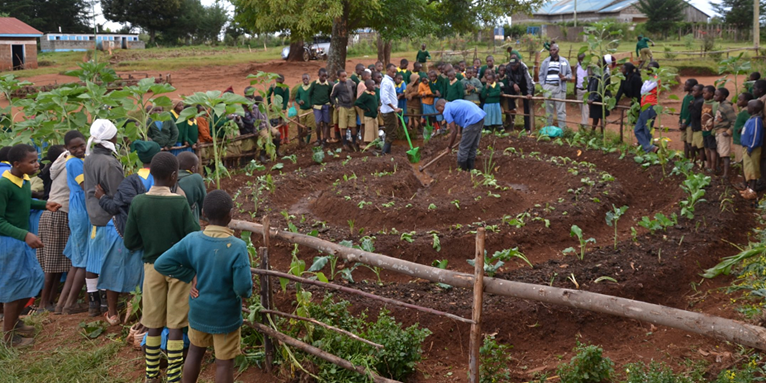Fighting malnutrition through the implementation of school vegetable gardens
By Solomon Tembang
Fighting malnutrition through implementation of school vegetable gardens
Children suffering from malnutrition perform poorly at school and/or in learning. Later in life, they are also less productive, and more likely to give birth to malnourished children. This situation hinders the country's development.
A country's future depends on its children and youth. Experts say optimal nutrition is essential for human development, hence the urgent need to promote the adoption of healthy eating habits. The fight against malnutrition also involves promoting the creation of school vegetable gardens.
Such is the vision of the J&A Oben Foundation, which works to promote good nutrition, well-being and longevity. It is in this spirit that the Foundation, through its Nutrition Incubator, plans to raise awareness in the educational community on the importance of optimal nutrition, through the implementation of vegetable gardens in schools.

The Foundation is convinced that schools can make a significant contribution to combating malnutrition, and that school gardens can help improve the nutrition and education of children and their families.
The idea is to encourage schools to create vegetable gardens managed mainly by pupils and students. These gardens will produce a wide range of natural vegetables and fruits, rich in the micronutrients the body needs to function and protect itself. The J&A Oben Foundation has an experimental vegetable garden at its disposal, enabling it to be better equipped to implement this project.
The use of a vegetable garden at school is designed to make a significant contribution to the adoption and perpetuation of healthy eating habits by pupils and students, who will automatically encourage those around them or their families to adopt healthy eating habits.
Gardening will not only develop in pupils and students a desire for fresh, healthy food, but also open them up to a wider variety of foods, helping to increase daily consumption of vegetables and fruits. It will also enable learners to identify certain plant species, in particular fruits and vegetables, and learn about their development cycles, as well as the seasonal nature of plants, fruits and vegetables.
In addition to its nutritional importance, the school vegetable garden has a pedagogical vocation in that it promotes better integration of teaching/learning and encourages self-development.
School gardens can help improve the nutrition and education of children and their families. This project therefore aims to encourage schools to create vegetable gardens managed primarily by the school children.
As soon as this project is launched (imminently) in the schools under the leadership of the competent authorities, it is expected that the country will witness the adoption and sustainability of healthy eating habits by the pupils, students and their families.
No comments yet. Start a new discussion.